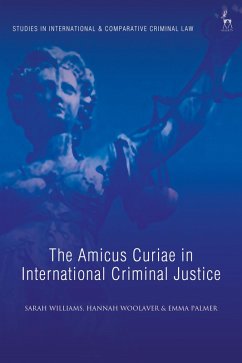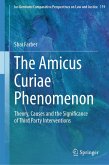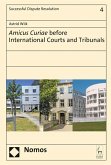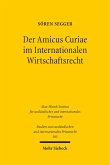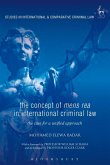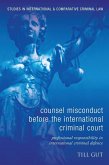The amicus curiae - or friend of the court - is the main mechanism for actors other than the parties, including civil society actors and states, to participate directly in proceedings in international criminal tribunals. Yet reliance on this mechanism raises a number of significant questions concerning: the functions performed by amici, which actors seek to intervene and why, and the influence of amicus interventions on judicial outcomes. Ultimately, the amicus curiae may have a significant impact on the fairness, representativeness and legitimacy of the tribunals' proceedings and decisions.
This book provides a comprehensive examination of the amicus curiae practice of the International Criminal Court and other major international criminal tribunals and offers suggestions for the role of the amicus curiae. In doing so, the authors develop a framework to augment the potential contributions of amicus participation in respect of the legitimacy of international criminal tribunals and their decisions, while minimising interference with the core judicial competence of the tribunal and the right of the accused to a fair and expeditious trial.
This book provides a comprehensive examination of the amicus curiae practice of the International Criminal Court and other major international criminal tribunals and offers suggestions for the role of the amicus curiae. In doing so, the authors develop a framework to augment the potential contributions of amicus participation in respect of the legitimacy of international criminal tribunals and their decisions, while minimising interference with the core judicial competence of the tribunal and the right of the accused to a fair and expeditious trial.

